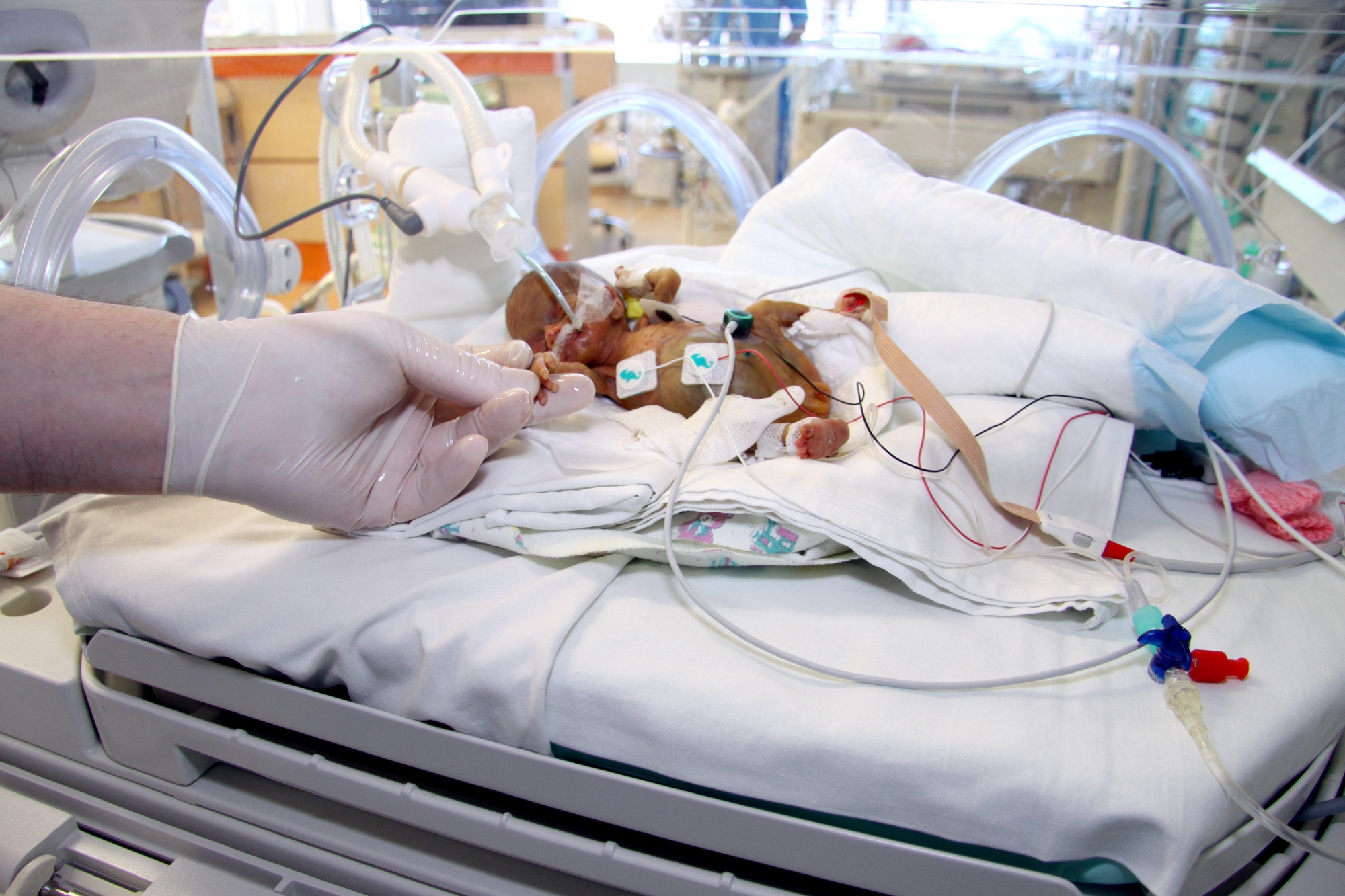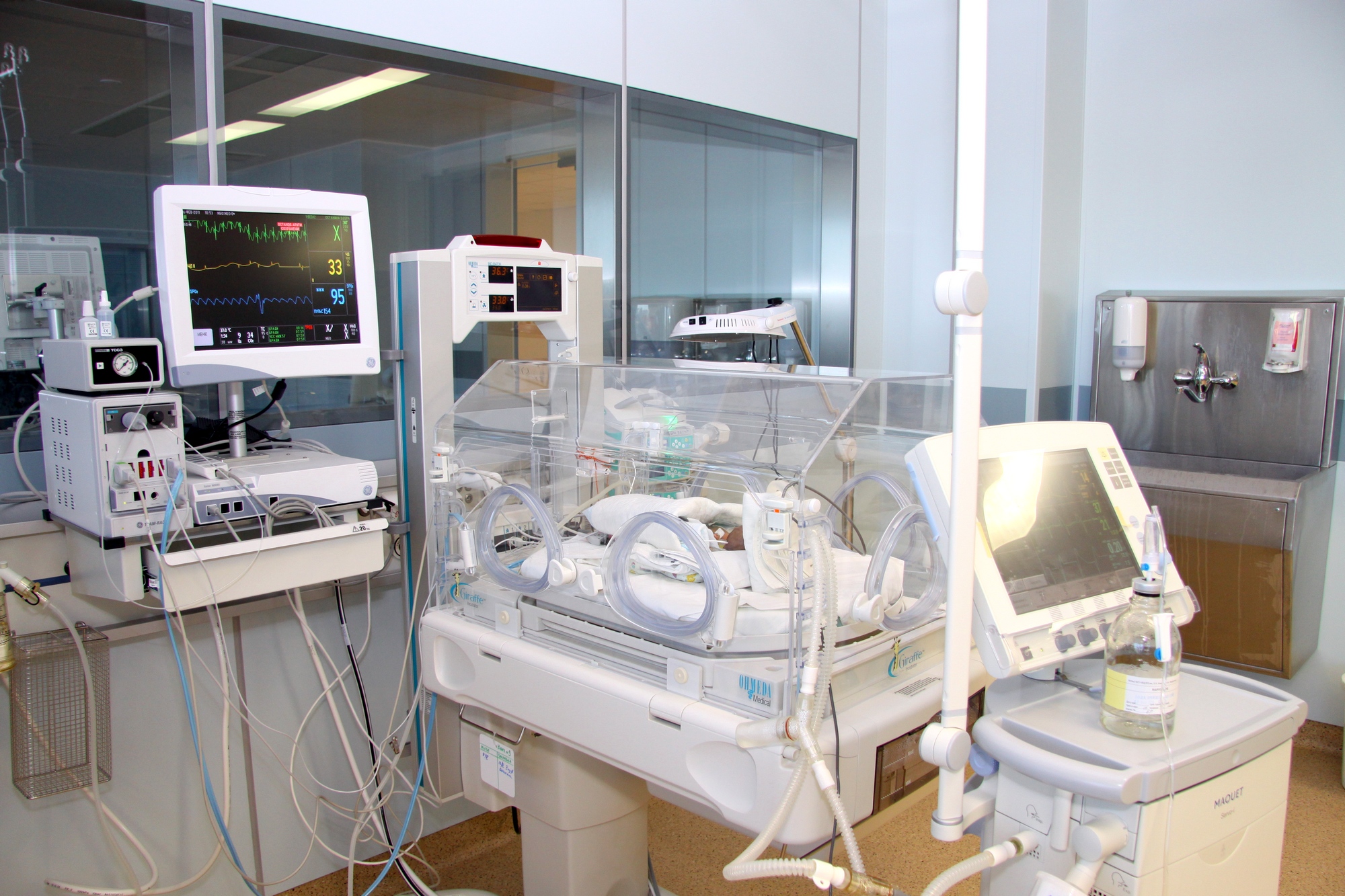
For 11 years now, the doctors of the Perinatal Centre have been giving a chance for a healthy life even to the smallest patients. Once again, thanks to the expertise and care taken by the highly qualified team of Almazov Centre, two premature babies born at 23 and 25 weeks (with birth weight of 550 and 650 grams, respectively) were recently discharged without terrible complications. Now the infants are approaching four months of age, for both of them it has been a difficult path and a whole team of doctors did everything possible to save their lives.
Now they can breathe on their own, without a ventilator and respiratory support. Providing enteral nutrition was challenging and there were serious risks of surgical intervention for gastrointestinal emergencies, but this was also avoided. Now the babies have no feeding difficulties, they are growing and acquiring new skills.
When the doctors confirmed that the life-threatening conditions were gone, the children were transferred to the premature nursery unit for the next important stage. They were prepared for living at home without medical care and support.
Four months after birth, the babies were discharged home. They are able to breathe and eat on their own, and their neurological development is up to the age.
The Pediatric Intensive Care Unit (PICU) provides care to children of three categories. The first and largest category includes children born in the Perinatal Centre from mothers with severe extragenital, cardiac or any other diseases (including cancer). It is known that the severity of the condition of the expectant mother affects the condition of her child. Despite this, some babies are still born healthy, and some unfortunately require medical help.
The second group includes neonates with severe congenital anomalies born in the Perinatal Centre and often requiring surgical repair in the neonatal period.
The third group are children with various congenital and acquired anomalies who were transported to Almazov Centre from different regions of Russia.
Extremely low birth weight babies (weighing less than 1 kg) constitute a special group among all the small patients of Almazov Centre. There are many reasons why a baby may be born prematurely. For instance, the risk of preterm birth increases with complicated pregnancy (severe preeclampsia, placental abnormalities), chronic and acute infectious diseases, immunological incompatibility between mother and fetus as well as congenital anomalies or genetic diseases. In addition, many very premature babies have signs of intrauterine infections, growth restriction and risk factors include a history of spontaneous abortion, recurrent miscarriage and stillbirth.
“Babies born prematurely are always our special patients. They seem to be thrown out into outer space. These babies do not have a single organ, system, or even a cell that would be completely ready for extrauterine life. Our task is to help them survive their first months and have not only a chance for a future life but also to grow up healthy,” says Dmitry Petrov, Chief of the PICU.
Premature babies may have many problems. Their lungs, cardiovascular system and immune response are immature.
“One of the main tasks for us is to ensure that extremely low birth weight premature babies not only survive but can grow up, be healthy, develop normally, have a high quality of life and experience their joys. The shorter the gestational age, the higher the percentage of loss, complications, the greater the risk of the child becoming disabled. Experts understand how important every week and every day of the intrauterine life is for the maturation of the fetus. The smaller the neonate, the higher the degree of immaturity and the longer will be the time in NICU. Therefore, if there are conditions for prolonging pregnancy, then we will try to use every chance to make this happen because the best conditions for childbirth are created by nature, and so far it is extremely difficult to do this in NICU,” explains Dr. Tatyana Pervunina, Director of the Institute of Perinatology and Pediatrics.

It can be said without exaggeration that doctors of almost all specialties from the Institute of Perinatology and Pediatrics, Perinatal Centre and Children's Rehabilitation Clinic take part in the care and treatment of children born with extremely low body weight and their well-coordinated teamwork is the only key to success.
The first stage can take several months and involves neonatal intensivists who coordinate the actions of all other specialists. Neonatologists help newborns who no longer require intensive care. The task of neurologists is to do everything possible for the successful neurological development of the baby. Since about 25% of babies have heart defects or other congenital diseases that require surgical treatment, a lot of work falls to the cardiologists, surgeons and cardiac surgeons. All treatment decisions are made based on the data provided by specialists in laboratory testing, ultrasound, functional and radiation imaging.
“Nurses play a very special role in the care. After all, the success of treatment very much depends on how the treatment prescribed by even the most experienced doctor will be carried out by the nurse. Often, care manipulations are technically difficult due to the extremely low body weight of the baby. And even simple care becomes complex and requires increased attention and high professionalism from the nursing staff, ”comments Deputy Chief for Medical Work, obstetrician-gynecologist Olga Li.
Specialists in rehabilitation and physiotherapy (massages, positional therapy, developmental care) also take part in the care for babies with extremely low body weight. Ophthalmologists help to treat the retinopathy of prematurity (a serious eye disease that can happen mainly in very premature babies). Thanks to their expertise and strict adherence to modern treatment protocols, it is possible to save the child's vision in most cases.
There are 12 beds in the department, but as a rule 10 or 11 babies are treated here at the same time and doctors try to keep one place free, since at any time emergency care may be required for a baby due to a premature childbirth or other obstetric emergency. On average, 30 to 50 premature babies are treated in the department per year, the survival rate is more than 80%.
Modern NICUs are family centered. After all, the focus of care is not only the baby but also the family. It is extremely important that they are together during this difficult time. The mother should be not just a visitor, but an important participant in the nursing process. Parental involvement and kangaroo care is very beneficial to even the smallest of preterm babies.
The Perinatal Centre has all the facilities and state-of-the-art technologies to care for very premature babies with proven positive outcomes: non-invasive surfactant administration, intra-hospital transport on non-invasive ventilation, early trophic breast milk feeding, the possibility of surgical treatment in the ICU, parental involvement in child care starting from the ICU.
“Needless to say that nursing a baby with an extremely low body weight is a huge stress and responsibility for a neonatologist. The path to recovery is very long, and there are both victories and defeats along the way. Each baby has their own reserves and their own pace, and the art of a doctor is to always rely on knowledge and experience and try to avoid possible complications. Almazov Centre encompasses all the best that science has to offer today and our multidisciplinary approach allows us to involve any specialists,” says Elena Vagina, Head of the Department of Newborns and Premature Infants.
Almazov Centre with its clinic of the Institute of Perinatology and Pediatrics successfully combines the trinity of research, clinic and education where doctors follow the most modern protocols and constantly share their experience with younger specialists and colleagues from other hospitals.
